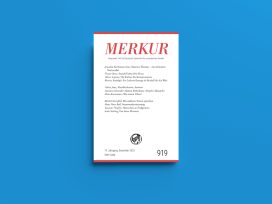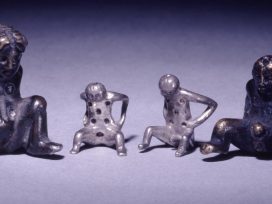Young German author Leonie Swann (1975) likes sheep. She has been to Ireland and she saw lots of them there. And so it occurred to her to write a book about them. About how one morning those wonderful Irish sheep find their shepherd with a spade in his belly and how they decide to go in search of the murderer. The investigation is led by Miss Maple (how ingenious!), but others give her a big hand with it – a fat sheep (Moby Dick), a black sheep (none other than Othello), a rambling sheep (Melmoth, the famous gothic pilgrim), and many more. They will eventually crack it; in addition, they will graze a vast area of grassland and consume three hundred pages of text.
Animal stories usually sway between two poles: on one side a view of a human world through an animal’s eyes is a standard method of making it unique, on the other side it is a means of humorous overstatement. Swann was manifestly unable to decide for either way: she is clearly not gifted enough to make it unique (she supplies the reader with banalities such as: “Gawkers along the fence brought out small appliances and were shooting flashes of lightning at the sheep.”) and she lacks the sense of humour necessary to achieve a humorous overstatement. So she holds on to the simplest but also the worst alternative – a narrative with speaking animals. An attempt at a view of the world from the sheep’s perspective keeps sliding towards anthropomorphization, which has as a consequence the disappearance of any logic in the system of naming things and phenomena. It is obvious the sheep should not understand human behaviour and should not know human objects. Yet they know some objects, purely according to the author’s whim. So the sheep know who a policeman is but they do not know a vicar. They know that beer is beer (and even know the brand they drink in the village), a car is a car, a gun is a gun, but a camera or a radio are unfamiliar to them.
Also the choice of animals became a stumbling block. Sheep, unlike dogs or horses, are not creatures to whom an ability of deeper intellectual analysis would be attributed. Although animal symbolism is double-edged, sheep carry attributes of a blind herd instinct and helplessness, humility and obedience. On the other hand, a young ram is traditionally identified with Christ. But there is not even an accidental hint of the author’s ability or intention to lead such a daring parallel. Even if the vicar of Glennkill is not an unimportant character, any semantic possibilities of a sheep symbol never came to her mind. On the contrary: the sheep embody, rather illogically, hell to the vicar. (Anyway, in order to be just: the scene in which Othello, a ram with a circus past, strays into a church and regards Jesus as a victim of a knife-thrower is well done on the whole.)
In the end, the reader begins to understand that the sheep do not actually investigate at all. Normally, a detective story moves forward by means of a detective gathering information and reconstructing events leading to a crime. Obviously, sheep in a role of detectives cannot question suspects and so they collect information by a literary technique that was already seen as primitive two hundred years ago – by eavesdropping. In other words: they are grazing and spying on people. Everything culminates in a helpless ending, in which a fictional likelihood gets out of the author’s hands to such a degree that the novel turns into an unwitting parody, all intensified by a sentimental full-stop, filled with big words of pseudo-wisdom and pathos.
As we can see, the idea had promised more than what the author, who was thirty at the time the book was published, was able to master. It is hard to say why this more or less dull and in mediocre book has become a bestseller, if this has happened at all and if the publisher does not fabricate for the purpose of its promotion. Swann (perhpas because she cannot think up anything else) has allegedly started to write a sequel. I have no doubts that Argo, in whose publishing plan short-lived commercial hits, the likes of Glennkill, dominate more and more, will make haste to publish its Czech version.






